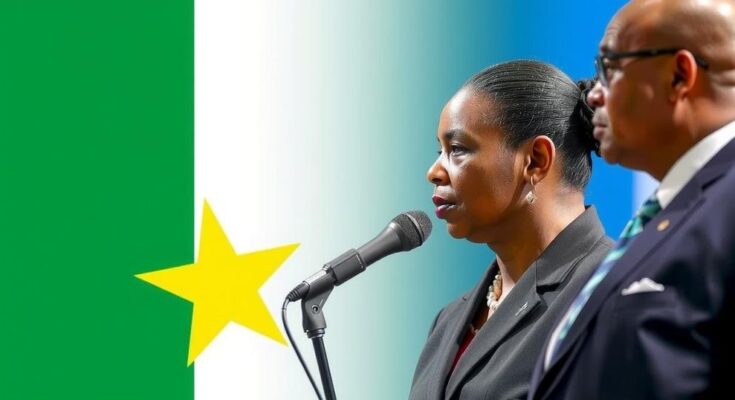Senegal held a parliamentary election to decide if President Bassirou Diomaye Faye can implement promised reforms. Voters selected 165 lawmakers amid a backdrop of political tension and youth discontent over economic conditions. Faye’s party needs at least 83 seats for a majority, crucial for enacting reforms against corruption and securing resources for citizens.
On Sunday, Senegal closed its polls for a pivotal parliamentary election, which holds the potential to either facilitate or hinder the ambitious reforms proposed by its newly elected president, Bassirou Diomaye Faye. With over 7 million registered voters participating, they were tasked with electing 165 members to the National Assembly amid a landscape where President Faye’s party does not currently hold a majority. Faye, elected in March with a campaign focused on anti-establishment sentiments, expressed that the absence of a parliamentary majority has obstructed his reform agenda aimed at tackling corruption and securing more benefits from national resources for Senegal’s citizens. In September, President Faye dissolved the previous opposition-led parliament, calling for a snap legislative election to seek a more favorable political environment. Candidates included Faye’s own party, PASTEF, and the opposition coalition led by former President Macky Sall, alongside 39 other parties. The election began at 8 a.m. and concluded at 6 p.m., with initial results anticipated by Monday morning, although a comprehensive count will take longer to finalize. Faye’s PASTEF party aims to capture a minimum of 83 seats to establish a majority in the assembly, a target analysts believe is achievable given Faye’s previous electoral success and his party’s popularity. Faye, now 44 years old, made headlines in March when he became Africa’s youngest elected leader, emerging from a prison sentence shortly before his victory. His ascent highlights the growing discontent among Senegal’s youth, who constitute a significant portion of the population and face daunting economic challenges, particularly high inflation and limited employment opportunities. Public sentiment resonates strongly with the youth, as expressed by 26-year-old student Aita Pene, who commented, “We need to be able to live a good life in Senegal so we don’t have to go abroad to find it.” Senegal has also seen a notable increase in irregular migration, with many individuals attempting to leave for better prospects in Europe. The electoral campaign was marred by violence, exemplified by confrontations between rival party factions, leading to property damages including the burning of an opposition party’s headquarters. Prime Minister Ousmane Sonko, who is an ally of Faye, condemned the violence directed at PASTEF supporters but later urged for peace amidst escalating tensions. In a show of solidarity, Faye called for calm and respect for the electoral outcomes, reiterating the importance of maintaining Senegal’s status as a stable democracy amidst regional instability. “There will be winners and losers but in the end, it is the people that win,” he expressed after casting his vote. This election represents a critical juncture for Senegal, as it not only assesses the political climate but also determines the nation’s resolve in addressing pressing economic and social concerns.
Senegal’s current political climate is profoundly influenced by its recent history, including the election of President Bassirou Diomaye Faye in March 2023. Faye’s rise was hailed as a response to widespread discontent with governmental practices, particularly regarding corruption and resource management. The dissolution of the opposition-led parliament by Faye serves as an indicator of his determination to secure legislative support for his reform initiatives. Furthermore, the demographic characteristics of Senegal, with over 60% of its population under 25 years of age, amplify the urgency for job creation and economic stability, as young people seek viable opportunities amid rising challenges.
The parliamentary election in Senegal marks a crucial moment for President Bassirou Diomaye Faye as he seeks to secure legislative authority to implement his promised reforms. The youth’s perspectives reveal a substantial desire for improved economic conditions, while the backdrop of violence during the campaign underscores the tension within the political landscape. Faye’s ability to command a majority in the National Assembly would not only define his presidency but also influence the socio-economic trajectory of Senegal in the years to come.
Original Source: www.pbs.org




